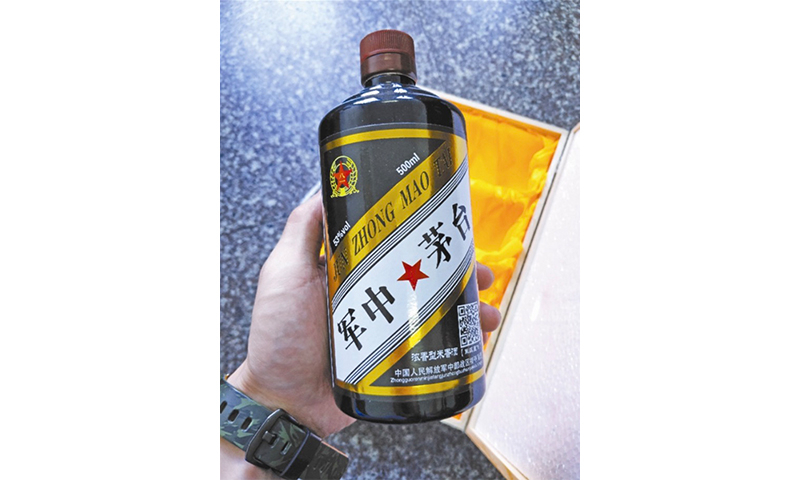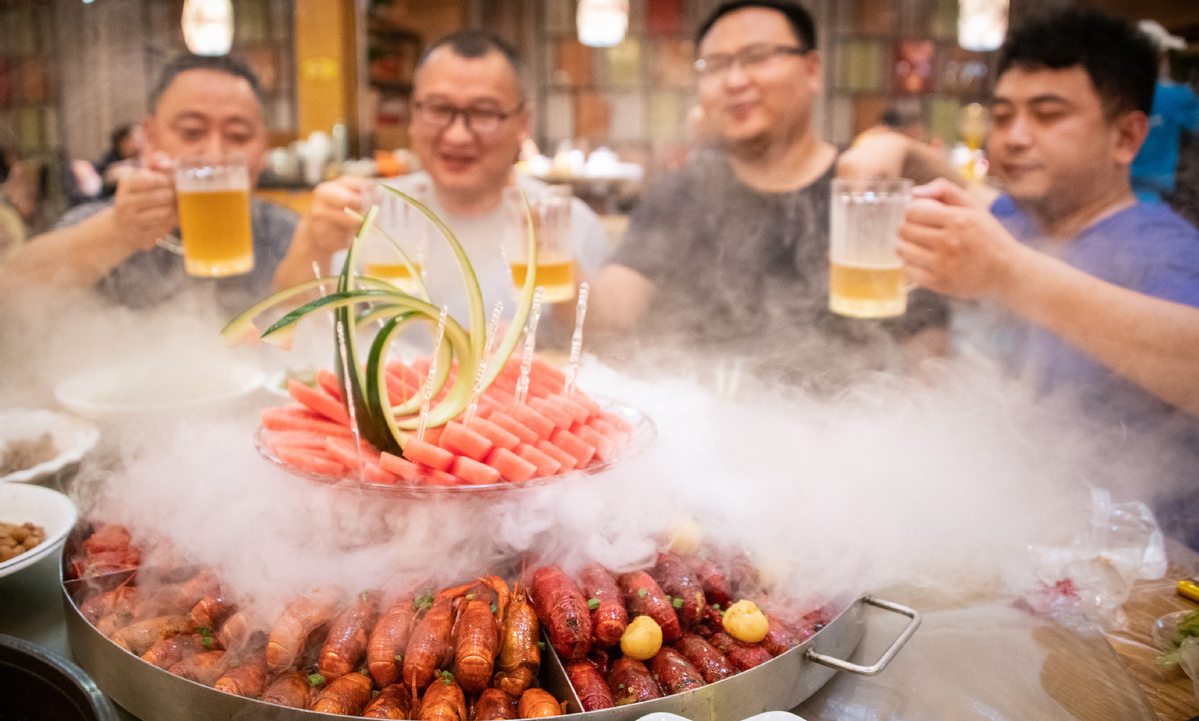Authorities in China jointly ban ads of fake military-related products to safeguard army’s good reputation

Photo: A screenshot from zjnews.zjol.com.cn
The Chinese authorities issued a notice to ban advertisements that use specific wording and logos related to the military to maintain the military's reputation and protect consumers from being misled by fake promotions, media reported Sunday.
According to a notice recently released on the website of the China National Intellectual Property Administration (CNIPA), some companies in recent years have been producing and selling fake products, alcohol and tobacco, and promoted them as “special for the army.” The CNIPA stated that this practice seriously damaged the reputation and image of the Chinese People’s Liberation Army (PLA).
Therefore, a ban on such behavior was issued by the authorities, including the Central Military Commission (CMC), the Logistic Support Department, the Office of the Central Cyberspace Administration Affairs Commission, the Ministry of Public Security, the State Administration for Market Regulation, the China Tobacco and the CNIPA, according to the notice.
The communication indicates that any institute or individual is banned to use the name of the PLA or the Chinese People's Armed Police Force (CAPF) for commercial purposes.
Online and store sales of military-branded tobacco and liquor products are prohibited. Military-branded goods use the names and logos on the products or on their packages mislead consumers and create a negative impact on the military, read the notice.
The names include, but are not limited to, the names of military institutes, including: the CMS, the PLA theater commands or the CAPF; the designation or code names of any military units; wording that has a special military meaning, like PLA and CAPF; and special patterns for the military, such as, the PLA flag or the emblems of the PLA or the CAPF, according to the notice.
The authorities also vowed to strengthen supervision over the production and sales of military-related products and the registration of military-related trademarks. Violators will be seriously dealt with if they refuse to rectify, according to the notice published on CNIPA’s website.
The ban came as some Chinese companies have tried to take advantage of the good reputation of the PLA and the CAPF in Chinese society to profit by including military-related wording and logos in their products and commercials to misguide consumers and make them believe these products are of good quality or rare as they are related to the military, according to industry observers.
Media reports show that a total of 6,554 brands containing the word “Jun,” the Chinese character for military are registered in the website of the CNIPA Trademark Office.
More than half of these trademarks were invalid or rejected during the application process, media said. Many had illegal business operations.
In 2018, the market regulation authority in Wenzhou, East China’s Zhejiang Province, cracked down a local store that sold illegal liquor including one brand that had the logo jun zhong mao tai, or “Maotai in the army,” and the PLA Central Theater Command written on the package of the bottle. The liquor was sold at 230 yuan ($34) each bottle.
As early as 1999, the Chinese market regulation authority banned companies, including military firms, from containing designations, code names of the PLA and CAPF or wording like “national defense” and “Bayi” (August 1, the day marking the founding of the PLA) in their names.
China’s Advertising Law also stipulates that advertisements must not use or covertly use the national flag, anthem, emblem, military flag, military songs or military insignia of the People’s Republic of China.
The latest ban by the authorities further clarified the meaning of military-related products.
Following the prohibition, some local authorities in China immediately launched a screening campaign against these products.
For example, the market regulation department in Boxing county, in East China’s Shandong Province, launched an investigation on more than ten local supermarkets and cigarette and liquor stores on July 7.
Photos
Related Stories
Copyright © 2022 People's Daily Online. All Rights Reserved.









